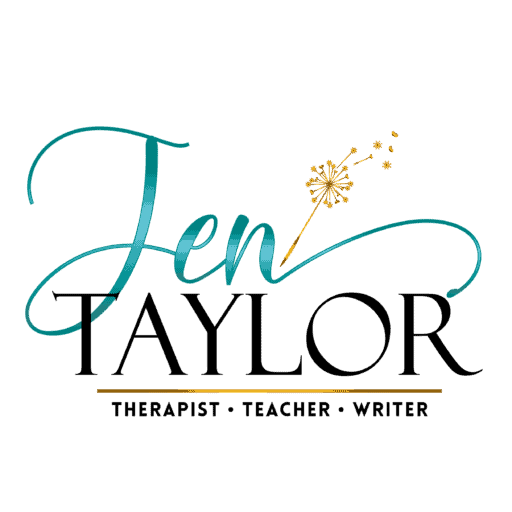For professionals looking for play therapy clinical supervision, it can be difficult to know who to choose or where to start. Just like anything in therapy, the number 1 factor in choosing a clinical supervisor (to me) is goodness of fit.
What I mean by goodness of fit for play therapy supervision comes down to one basic question:
Do you like the person that you are getting supervision from?
While that is certainly not the ONLY criteria, it is a big one. If you do not like the person that you are getting supervision from, either a) you may grow to like them over time or b) you may end the relationship because it is not a good fit.
Choosing a supervisor can be done in three phases
- Pre-Selection Research
- Interviews
- Decision Making
Play Therapy Supervision: Pre-Selection Research
My number one recommendation for choosing a clinician for play therapy supervision is do some research.
Here are a few guiding questions to answer for potential supervisors that you should be able to find out before you even call:
What are their credentials (psychologist, social worker, professional counselor, etc)?
For clinical supervision it is sometimes required that the supervisor be from your discipline, but for play therapy supervision, it is not required. Sometimes it is helpful to have a supervisor that can do both your clinical supervision and your play therapy supervision at the same time.
I am a Licensed Clinical Social Worker (Maryland and Florida) I am not currently providing licensure supervision to anyone outside of Maryland.
Do they have a specific niche or other certifications?
From the “About Me” page of their website, you should be able to see what additional training they have. Beginning in 2020, all play therapy supervision must be done under an RPT-S (Registered Play Therapist-Supervisor). This should be clearly listed on their website. However, they may also be trained in areas that interest you (TF-CBT, EMDR, Theraplay, Animal Assisted Therapy, etc). If there is a specialization that you are interested in, it is helpful to have a supervisor that is knowledgeable in that area.
I am a Registered Play Therapist-Supervisor, EMDR trained clinician and TF-CBT certified.
Where are they located?
You may look for a supervisor that you can visit in person who is in your area. The Association for Play Therapy allows for distance play therapy supervision, so you have the option of pursuing professionals outside your region.
Play Therapy Supervision: Interview Phase
After you have done some initial research on potential supervisors, then my encouragement is to reach out to them by email or phone and do an “interview” or quick consultation.
Here’s some things to cover in your interview of potential supervisors:
What are the logistics?
Obviously, you need to talk right away about logistics. When are they available? Do they offer group and individual? What is the schedule and availability? What is the cost? What platforms do they use for scheduling, sharing information, etc? What is their cancellation policy? How do they handle payments?
Describe your theoretical background.
Ask about their theoretical background because this is really going to influence everything that they tell you. The myth is that there is only ONE type of play therapy. However, your play therapy supervisor will be able to tell you immediately what their PRIMARY theoretical belief is.
Some choices would include child centered, attachment based, trauma informed, experiential, synergetic, Jungian, Gestalt, or Adlerian (among others). You may not know at this stage what type of theoretical background you want, but you should at least know where your supervisor is coming from. It will impact every single piece of information you get from them.
What does a typical supervision session look like?
This includes what they expect you to do in preparation, how often they review your case notes, files, or play session videos and if they require any additional work outside of your meetings. For example, I had a supervisor once that required everyone to complete written assignments outside of our meetings. Others want to review your case file every meeting. Some don’t require either. Just ask.
My group sessions have a “hot seat” format. Everyone in the group participates. We start with “What is going well?” then transition to “What problem/case do you want to discuss?” to “What are you planning to try/implement before our next session?” The Association for Play Therapy requires that your supervisor review actual play sessions.
Play Therapy Supervision: Selection Phase
After you have done initial research and completed interviews of a few different potential supervisors, then make a selection. Go with your gut! Again, it goes back to that idea of goodness of fit.
Do you like the person? Do you trust them?
I had a potential EMDR consultant that I really wanted to work with due to her reputation and expertise. But, the office manager in charge was slow to respond and disorganized and her schedule was jammed pack and very hard to find a time to meet. After two month of trying to make it work, I decided that it wasn’t a good fit for us at that time.
Remember, that you can always change supervisors.
Final Thoughts:
One of the most common pieces of advice from seasoned professionals is to get good quality supervision. That doesn’t always mean the most expensive. It also doesn’t mean that “the best” person for me is the best person for you. There are so many good professionals out there with different experiences. What is best for you at the beginning of your career is probably not the best fit when you are ten years in and learning a new specialization. Just get started.

0 comments